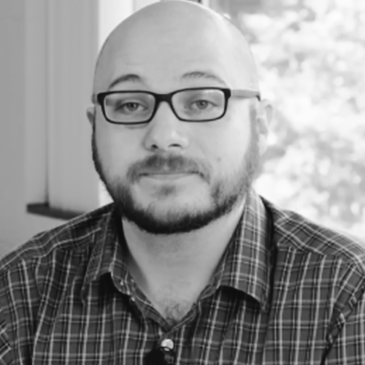Marina Caillaud became fascinated with insects after taking an entomology course that was part of her undergraduate biological engineering training. This led her to a Master’s in Neurobiology and Behavior focusing on how honey bees processed volatile and pheromonal blends, then to a Ph.D. centered on the creation of wheat genetic stocks resistant to insect attack. Today, Dr. Caillaud teaches several large non-major courses at Cornell University, including one entitled “Honey Bees: Their Intriguing Biology and Interactions with Humans Through Centuries.”
Course Overview
Honey bees have long been an object of fascination for mankind, prized for their honey and beeswax since prehistoric times. Bee pollination is responsible for more than $15 billion in increased crop value each year in the U.S., and their decline threatens the commercial production of many specialty crops that depend on them. The complexity of bees' communal life has intrigued observers and scientists alike.
This course aims to examine one of the most amazing life forms we know, exploring the complex relationships between humans and honey bees throughout history. Topics covered include chemical ecology, insect physiology, beekeeping, behavioral ecology, pollination biology, sociobiology, the effects of diseases and pesticides on bee health, and conservation biology.
Key Course Takeaways
- Discover how honey bees evolved and their relationship to other types of bees
- Identify the major organ systems and other features of a bee's anatomy
- Describe the life cycle of a honey bee and how individual members of the colony communicate with one another
- Explore the complex cognitive skills that bees apply to problem solving and how humans can learn to make better decisions by mimicking bees
- Quantify the economic value of bee pollination in agriculture and other human endeavors
- Analyze evidence of pollinator decline, identify likely causes, and develop strategies to support pollinators locally and globally

How It Works
Course Authors
David Peck researches honey bee behavior and the evolutionary host-parasite relationship between bees and Varroa mites. Since completing his doctoral work in Cornell’s Department of Neurobiology and Behavior, Dr. Peck has done field research and consulted to protect bees in both Newfoundland, Canada, and Anosy, Madagascar. He left Cornell to move to Greenwich, New York, where he now works for Betterbee. Dr. Peck develops and teaches classes on beekeeping and bee biology, bridges the gap between cutting-edge bee science and the beekeeping industry, and conducts research to improve our understanding of bee biology and to help keep honey bees healthy. After years of working exclusively with university-owned research hives, he finally has a few hives of his own at home.
Bryan Danforth studies the biology, evolution, natural history, and phylogeny of wild, mostly solitary bees. Dr. Danforth became interested in solitary bees as a graduate student at the University of Kansas studying under Charles D. Michener. Spending summers at the American Museum of Natural History’s Southwestern Research Station in Portal, Arizona, introduced him to the biology and life history of diverse solitary bee species. As a pre-doctoral fellow at the Smithsonian Institution, Dr. Danforth studied bee phylogeny, and as a professor at Cornell, he continues to study the intersection of bee biology and phylogenetics. His field work has taken him to some of the world’s bee biodiversity hotspots, including the American desert southwest, arid regions of Europe, southern Africa, Madagascar, and southern Australia. Dr. Danforth continues to be fascinated by the bizarre and interesting lives of solitary bees. He has authored two books on bees: “The Bee Genera of North and Central America” and “The Solitary Bees: Biology, Evolution, Conservation.”

Marina Caillaud became fascinated with insects after taking an entomology course that was part of her undergraduate biological engineering training. This led her to a Master’s in Neurobiology and Behavior focusing on how honey bees processed volatile and pheromonal blends, then to a Ph.D. centered on the creation of wheat genetic stocks resistant to insect attack. Today, Dr. Caillaud teaches several large non-major courses at Cornell University, including one entitled “Honey Bees: Their Intriguing Biology and Interactions with Humans Through Centuries.”

David Peck researches honey bee behavior and the evolutionary host-parasite relationship between bees and Varroa mites. Since completing his doctoral work in Cornell’s Department of Neurobiology and Behavior, Dr. Peck has done field research and consulted to protect bees in both Newfoundland, Canada, and Anosy, Madagascar. He left Cornell to move to Greenwich, New York, where he now works for Betterbee. Dr. Peck develops and teaches classes on beekeeping and bee biology, bridges the gap between cutting-edge bee science and the beekeeping industry, and conducts research to improve our understanding of bee biology and to help keep honey bees healthy. After years of working exclusively with university-owned research hives, he finally has a few hives of his own at home.

Bryan Danforth studies the biology, evolution, natural history, and phylogeny of wild, mostly solitary bees. Dr. Danforth became interested in solitary bees as a graduate student at the University of Kansas studying under Charles D. Michener. Spending summers at the American Museum of Natural History’s Southwestern Research Station in Portal, Arizona, introduced him to the biology and life history of diverse solitary bee species. As a pre-doctoral fellow at the Smithsonian Institution, Dr. Danforth studied bee phylogeny, and as a professor at Cornell, he continues to study the intersection of bee biology and phylogenetics. His field work has taken him to some of the world’s bee biodiversity hotspots, including the American desert southwest, arid regions of Europe, southern Africa, Madagascar, and southern Australia. Dr. Danforth continues to be fascinated by the bizarre and interesting lives of solitary bees. He has authored two books on bees: “The Bee Genera of North and Central America” and “The Solitary Bees: Biology, Evolution, Conservation.”
- View slide #1
- View slide #2
- View slide #3
Who Should Enroll
- Beekeepers
- Anyone interested in honey bees and other bees
- Anyone interested in humanity's relationship with the natural world
- Anyone interested in the impacts of current agricultural practices — including the use of pesticides and herbicides — on the environment
100% Online
cornell's Top Minds
career

